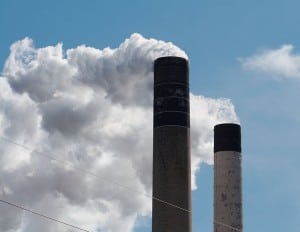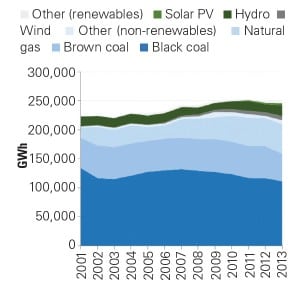Legal & Regulatory
-
Legal & Regulatory
FERC’s Work on the Clean Power Plan
Cheryl A. LaFleur One of the most controversial issues facing the energy world today is how our electric sector will respond to the U.S. Environmental Protection Agency’s (EPA’s) proposed Clean Power Plan
Tagged in: -
Legal & Regulatory
Ohio Regulators Deny AEP’s Coal Plant Cost Recovery Plan
The Public Utilities Commission of Ohio (PUCO) approved an electric security plan (ESP) for AEP Ohio—a unit of American Electric Power—on Feb. 25, but declined to adopt the company’s proposed power purchase agreement (PPA) as it relates to the Ohio Valley Electric Corp. (OVEC). The PPA rider was a point of contention with several groups […]
Tagged in: -
Legal & Regulatory
Duke Fined $102.2 Million for Mishandling Coal Ash
Duke Energy has been charged by federal authorities with nine misdemeanor counts of violating the Clean Water Act and other federal regulations stemming from improper disposal of coal ash at multiple sites in North Carolina. Duke said in a statement on Feb. 20 that it had entered a plea agreement with federal prosecutors to settle […]
-
Legal & Regulatory
Ameren Comments on Suggested Revisions to the EPA’s Clean Power Plan
Although there has been plenty of discussion in the U.S. power industry about the challenges posed by the Environmental Protection Agency’s (EPA’s) proposed Clean Power Plan (CPP), Missouri-based Ameren Corp. is the first generating company to go public with a specific set of proposed revisions. On Feb. 11, Ameren released a white paper that proposed […]
Tagged in: -
Legal & Regulatory
Fixed Solar Fees Are Tesla’s Best Friend and a Utility Own Goal
Two developments yesterday, one quiet, one rather loud, suggest the long-predicted existential threat to the traditional utility model may be at hand. The quiet news came from the California Independent System Operator (CAISO), which reported that utility-scale solar generation crossed the 5-GW mark for the first time yesterday. Between 10 a.m. and 2 p.m. PST, […]
-
Legal & Regulatory
Mississippi Supreme Court Strikes Down Kemper County IGCC Rate Increase
In yet another black eye for the long-delayed and hugely over-budget Kemper County integrated gasification combined cycle plant (IGCC), the Mississippi Supreme Court ruled on Feb. 12 that the Mississippi Public Service Commission (MPSC) erred in granting plant owner Mississippi Power rate increases in 2013 and 2014, and ordered that the increases be refunded to […]
-
Legal & Regulatory
States Can “Just Say No” to the EPA’s Carbon Rule, Expert Says
According to Peter S. Glaser, partner with Troutman Sanders LLP, who practices in the energy and environmental law fields, saying “no” is an option that states have in response to the Environmental Protection Agency’s (EPA’s) Clean Power Plan proposal. Speaking during a panel discussion at George Mason University’s Law and Economics Center on Feb. 4, […]
Tagged in: -
Legal & Regulatory
Activists Show Up in Droves for EPA Ozone Hearing
The Byron Sher Auditorium in Sacramento, Calif., was filled at times with students, parents, and other concerned citizens as the Environmental Protection Agency (EPA) held the last of three public hearings on proposed updates to the national air quality standards for ground-level ozone on Feb. 2. The hearings were scheduled as part of the policymaking […]
Tagged in: -
Legal & Regulatory
World Faces Challenges in Meeting Access, Renewables Goals
The world will fall short of the goal of providing universal sustainable electricity access by 2030 set by the United Nations and World Bank without “immediate concerted action” by governments, industry, and the international community, according to a survey of utilities around the world conducted by the Global Electricity Initiative (GEI). The GEI is a […]
-
Legal & Regulatory
Australia’s Renewables Impasse Weighs Heavily on Generators
The long-drawn-out political impasse on Australia’s review of its Renewable Energy Target (RET) has generators reeling from what they say are “constant policy changes and distortions from successive interference by governments.” Australia’s RET, which has been in operation since 2001, was increased in 2010 to require that about 20% of the nation’s then-projected demand in […]







